New spacecraft engine being developed by Diversified Technologies
A new spacecraft engine powered by in-situ propellants that provides enhanced in-space maneuverability and greater payload capacity, is being developed by Diversified Technologies, Inc. (DTI).
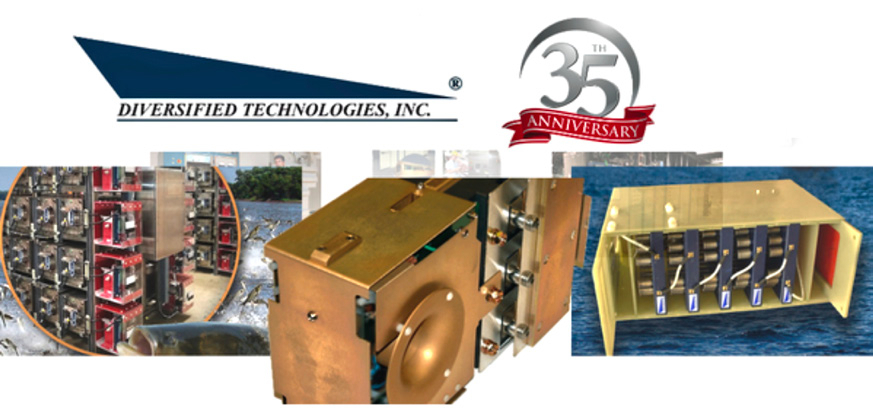
The Atmosphere-Refueling Magnetic Induction Plasma Engine (AR-MIPE) provides high thrust at specific impulse without the need for electrodes, vastly extending thruster life and permitting the use of low cost, in-situ propellants.
The 100 kW, electrodeless, inductive thruster which ionizes propellant and accelerates electrons and ions to great velocities is a significant paradigm shift in propulsion technology for space travel as it eliminates the need to carry heavy fuel payloads from Earth.
Very efficiently converting energy into thrust that can move a spacecraft in tiny increments for extended periods of time, the basic geometry of the AR-MIPE is a tubular linear induction motor with phased coil-excitation.
By employing an electrodeless inductive thruster which minimizes plasma-wall interactions and by capturing and storing propellants available throughout the solar system as fuel, the AR-MIPE will be able to support longterm interplanetary exploration missions.
SpaceX launches the Ovzon 3 GEO satellite
On Wednesday, January 3 at 6:04 p.m. ET, SpaceX launched the Ovzon 3 mission to geosynchronous transfer orbit from Space Launch Complex 40 (SLC-40) at Cape Canaveral Space Force Station in Florida.
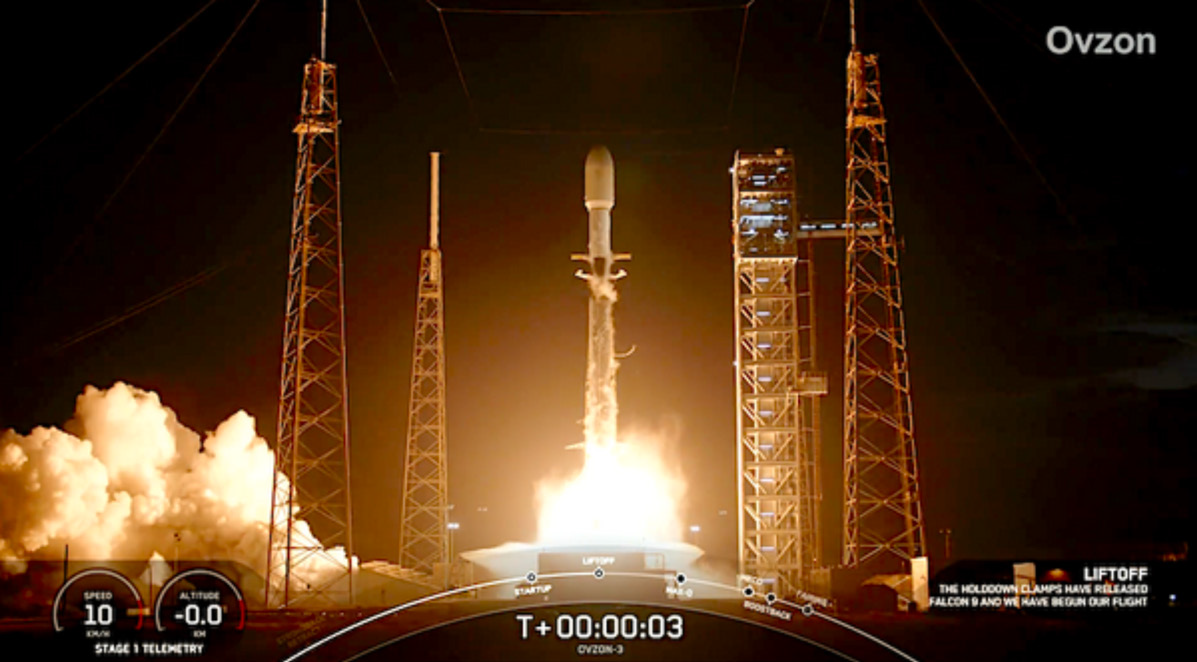
This was the 10th flight of the first stage booster supporting this mission, which previously launched CRS-26, OneWeb Launch 16, Intelsat IS-40e, O3b mPOWER, and five Starlink missions.
Ovzon 3 is the first in its class that has been specifically designed and developed to provide the highest degree of mobility, performance, and resiliency — offering superior performance for all missioncritical assignments.
Ovzon 3’s patented solution, with high-powered steerable beams and a unique On-Board-Processor changes the way Mobility, Performance and Resiliency are current,y known.
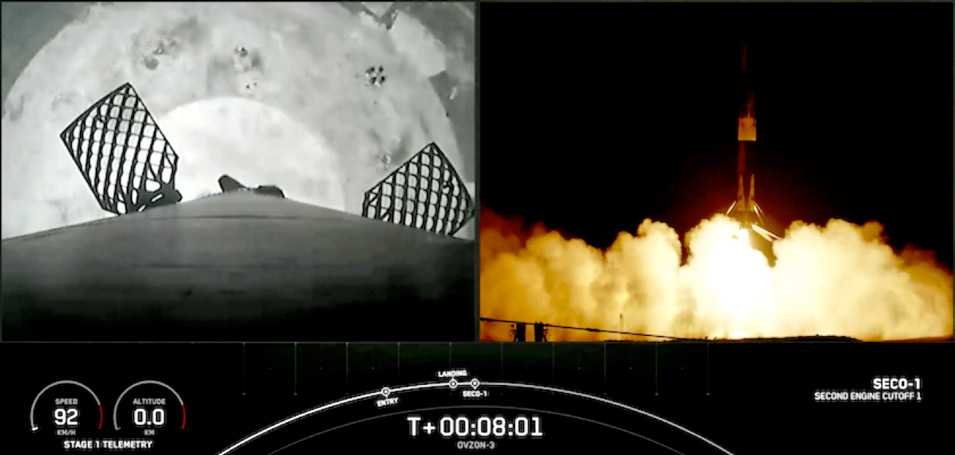
The Falcon 9 successfully landed on Landing Zone 1 (LZ-1) at Cape Canaveral Space Force Station in Florida.
SpaceX representatives said the company aims to launch 144 orbital missions this year surpassing the record of 96 set in 2023.
ispace + Orbit Fab sign MoU for propellant harvesting in-space
ispace, inc. and Orbit Fab, Inc. will collaborate on in-space propellant harvesting and delivery for future missions to the Moon via an MoU that the companies signed last month.
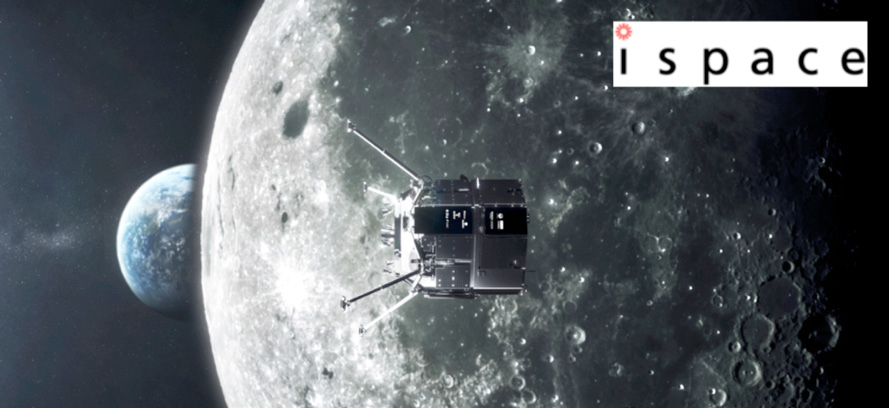
This ispace-Orbit Fab partnership will leverage each company’s complementary capabilities to develop effective propellants and fuels from resources in space, such as water, ice, and lunar regolith or fine and rocky soils found on the surface of the Moon.
The MoU sets the stage for a series of innovative demonstrations, including resource mapping and in-situ resource utilization (ISRU) missions aimed at drastically reducing the reliance on supplies from Earth. The companies ultimately plan for Orbit Fab to refuel ispace lunar landers, as they travel through space to extend lunar and cislunar missions.
The two companies have agreed to steward and demonstrate new ways of managing lunar resources for the benefit of all humanity.
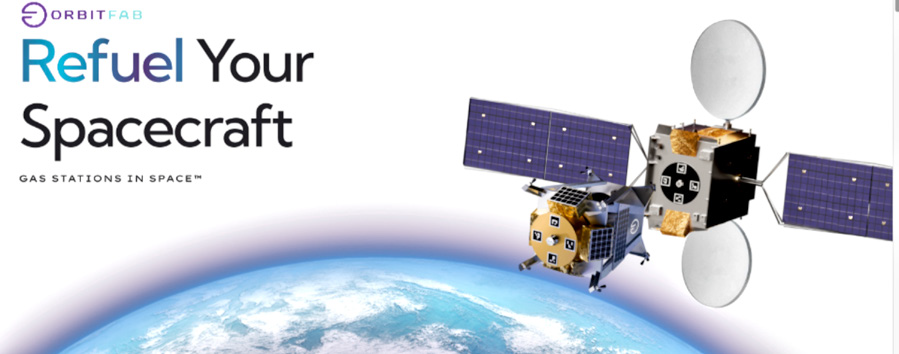
Orbit Fab is deploying its RAFTI™ (Rapidly Attachable Fluid Transfer Interface) refueling ports aboard a growing number of government and commercial spacecraft, enabling the safe and secure replenishment of satellites, lunar landers, and other vehicles as they run low on fuel.
ispace expects to play a pivotal role in procuring propellants in space to power Orbit Fab’s fuel shuttles and depots on cislunar and lunar missions.
“Creating a supply chain to utilize space resources on the Moon and in orbit is an essential step in realizing ispace’s vision of “Expand our Planet. Expand our Future,” said Takeshi Hakamada, CEO and Founder of ispace. “We are pleased to be working with Orbit Fab as a step in this direction. I am confident that our collective efforts will lead to positive steps toward long-term lunar development and the creation of the cislunar economy.”
“This exciting collaborative agreement between ispace and Orbit Fab is truly dedicated to building and enabling a sustainable and bustling lunar economy,” said Daniel Faber, Orbit Fab Founder and CEO. “This partnership is keenly focused on extending the life of critical operations like ispace’s lunar lander missions by utilizing in-space resources to refuel and support the reusability of satellites and other vehicles for years in space.”
Sidus Space gets NOAA ‘OK’ to provide imaging services
Sidus Space (NASDAQ: SIDU) has reported that NOAA has granted the company a Tier 1 remote sensing license to include Panchromatic (PAN) and Shortwave Infrared (SWIR) imaging capabilities — this approval includes Sidus’ upcoming LizzieSat™ that is scheduled for launch in March of 2024 aboard the SpaceX Transporter-10 mission from Vandenberg SFB, as well as subsequent LizzieSat satellites. Through this new license authority, Sidus LizzieSat™ satellites will collect and distribute images and data to government and commercial customers supporting a wide range of applications.
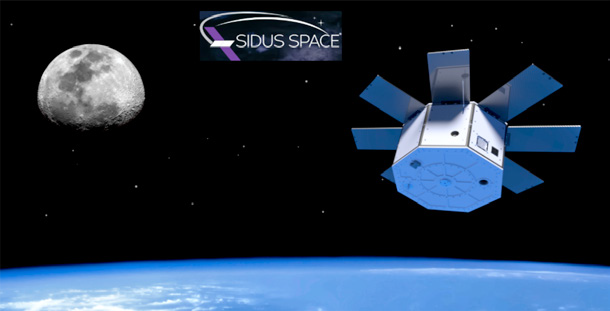
The Sidus’ PAN and SWIR imagers will flow high-quality, diverse satellite data into the company’s FeatherBox Artificial Intelligence onboard processor which integrates the images with time synced Automated Information Systems (AIS) and GPS data to provide near real-time customer status regarding marine traffic trends, illegal fishing activities, methane emission locations and quantities, and vegetative stress implications on crop production around the globe.
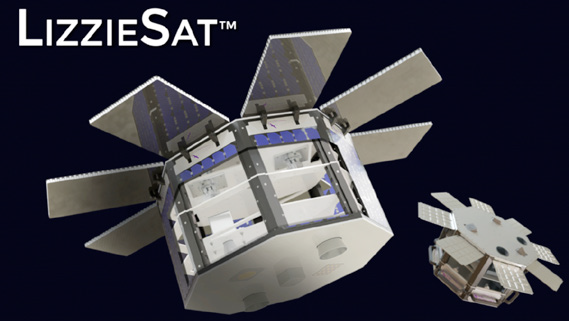
The company has also updated their Edge Artificial Intelligence (AI) software and hardware for space applications expansion. The integration of AI/ML into Sidus’ existing offerings enhances and strengthens the firm’s mission to advance satellite technology and expand solutions for customers.
Sidus’ investment in AI/ML includes a host of innovative AI software solutions that transform geospatial data into actionable answers. Sidus has successfully integrated AI hardware and software into its LizzieSat™ satellite design. This new AI software gives Sidus the ability to offer on-orbit tailored solutions to a broader range of customers by providing the resources and expertise to process geospatial data more effectively.
Rivada Space Networks partnering with Wiseband
Rivada Space Networks, a global network company launching a constellation of 600 LEO satellites, is partnering with Wiseband, an Emirati satellite services company, to bring secure connectivity solutions to the Middle East region.
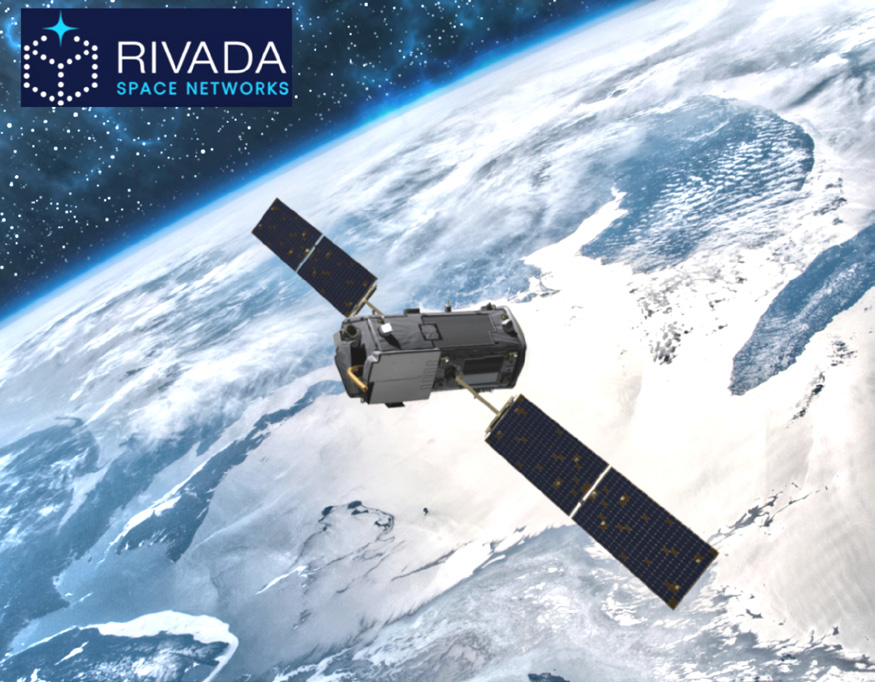
Based in the United Arab Emirates (UAE) and operating across the Middle East and Africa (MENA), Wiseband provides customized private satellite networking solutions which are designed to meet highperformance and stringent security requirements.
The company currently has connectivity projects in UAE, KSA, Kuwait and Egypt. Rivada’s global low-latency point-to-point orbital network, the OuterNET™, is a unique, nextgeneration constellation that combines inter-satellite laser links with advanced onboard processing to provide unique routing and switching capabilities and create an optical mesh network in space. This orbital network, in which data stays in space from origin to destination, creates an ultra-secure satellite network with pole-to-pole coverage, offering end-to-end latencies lower than terrestrial fiber over similar long distances.
By routing traffic on a physically separated network, it provides a layer of defense for any organization that needs to securely share data between widely distributed sites.

For Enterprise and Government Communications, Rivada’s OuterNET will provide an easyto- deploy network with higher bandwidth and improved security for resilient and more reliable communications services.
Ahmed Hassan, CEO of Wiseband, said, “Wiseband is looking to tap onto Rivada Space Networks’ highly secure point-to-point secure communications network to provide advanced and customizable secure solutions to our existing enterprise customers and to develop the emerging markets in Middle East. The OuterNET™ is a fully interconnected orbital network which effectively serves as a private network in space, capable of routing traffic at gigabit speeds from one satellite to another with no need for a gateway on earth. We see this as the key infrastructure for the development of the enterprise and government sectors in the Middle East and beyond.”
Declan Ganley, CEO of Rivada Space Networks, said, “We are delighted to be partnering with Wiseband based on their long history and expertise in serving the telecoms sector in Middle East region. Rivada’s OuterNET is what data communications has been waiting for – a gamechanging constellation that re-defines connectivity in terms of security, latency, capacity, efficiency, and coverage. As a completely new type of LEO constellation, the OuterNETTM can provide the Middle East region with a next-generation infrastructure for secure, resilient communications and network expansion.”

